Syracuse: A Hub of History, Culture, and Innovation on the Map of New York
Related Articles: Syracuse: A Hub of History, Culture, and Innovation on the Map of New York
Introduction
With great pleasure, we will explore the intriguing topic related to Syracuse: A Hub of History, Culture, and Innovation on the Map of New York. Let’s weave interesting information and offer fresh perspectives to the readers.
Table of Content
Syracuse: A Hub of History, Culture, and Innovation on the Map of New York
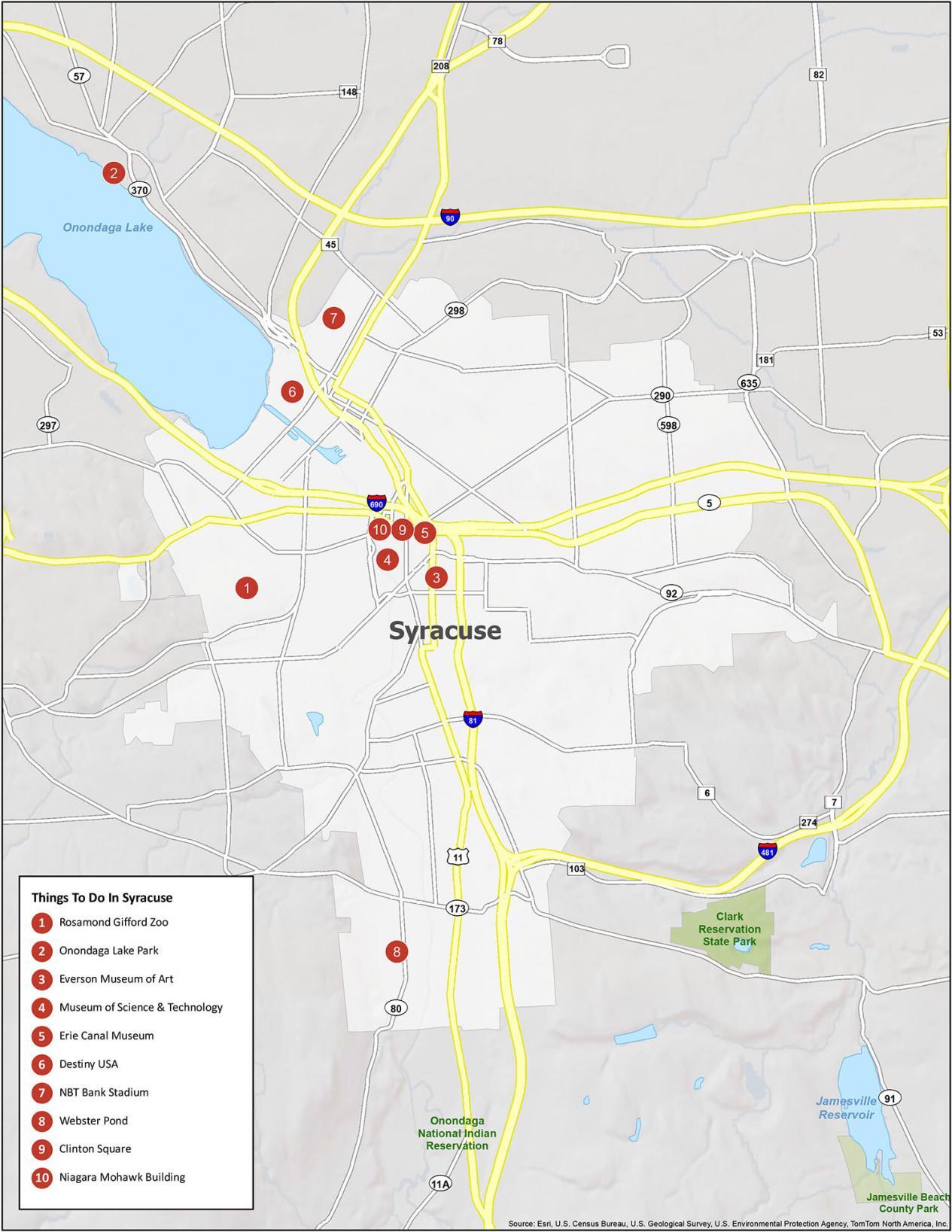
Syracuse, New York, stands as a vibrant city nestled in the heart of the state’s Finger Lakes region. Often referred to as the "Salt City" due to its historical connection to the salt industry, Syracuse boasts a rich tapestry of history, culture, and innovation. Its strategic location and diverse offerings make it a compelling destination for residents, visitors, and businesses alike.
A City Steeped in History:
Syracuse’s origins can be traced back to the 18th century, when the area served as a vital trading post. Its strategic location along the Erie Canal, a vital waterway connecting the Great Lakes to the Atlantic Ocean, propelled its growth and cemented its role as a major commercial center. The city’s industrial past, driven by industries such as salt mining, manufacturing, and brewing, left an indelible mark on its character and architecture. Historic landmarks like the Erie Canal Museum and the Onondaga County Courthouse stand as testaments to this rich heritage.
A Cultural Hub:
Syracuse is a city that pulsates with cultural energy. The renowned Syracuse University, a leading institution of higher education, infuses the city with a youthful vibrancy and intellectual dynamism. The city boasts a thriving arts scene, with venues like the Landmark Theatre, the Everson Museum of Art, and the Syracuse Stage showcasing diverse artistic expressions. The city’s annual events, including the Syracuse Jazz Fest, the New York State Fair, and the Syracuse International Film Festival, further enrich its cultural landscape.
A City of Innovation:
Beyond its historical significance and cultural richness, Syracuse is a city embracing innovation and progress. The city is home to a burgeoning technology sector, with companies like Micron Technology and Excellus BlueCross BlueShield driving technological advancements. Syracuse University’s strong research programs and the presence of the SUNY College of Environmental Science and Forestry contribute to the city’s innovative spirit. The city’s commitment to sustainability is evident in initiatives like the Syracuse Green New Deal, aimed at creating a more environmentally friendly and resilient city.
A City of Opportunities:
Syracuse offers a unique blend of urban amenities and a close-knit community feel. The city’s cost of living is relatively affordable compared to other major cities in the Northeast, making it an attractive destination for families and young professionals. The city’s diverse neighborhoods, from the historic downtown area to the vibrant university district, offer a range of housing options and cultural experiences.
Syracuse on the Map: A Closer Look:
Location:
Syracuse is located in the central part of New York State, approximately 150 miles west of Albany and 300 miles north of New York City. Its strategic location at the intersection of Interstate 81 and Interstate 90 makes it easily accessible by road. Syracuse Hancock International Airport provides convenient air travel connections.
Demographics:
Syracuse is a city with a diverse population, reflecting its history as a hub for immigration and a center of education. The city’s population is approximately 145,000, with a significant student population from Syracuse University and other institutions of higher learning.
Economy:
Syracuse’s economy is diverse, with key industries including education, healthcare, manufacturing, and tourism. The city is home to several Fortune 500 companies, including Excellus BlueCross BlueShield and Micron Technology. The city’s proximity to major metropolitan areas like New York City and Boston also provides opportunities for commuting and business development.
Education:
Syracuse is renowned for its educational institutions, with Syracuse University being a prominent national university. The city also boasts several other institutions of higher learning, including SUNY College of Environmental Science and Forestry, Le Moyne College, and Onondaga Community College. These institutions contribute significantly to the city’s intellectual vitality and economic growth.
Attractions:
Syracuse offers a wealth of attractions for visitors and residents alike. Some notable attractions include:
- The Erie Canal Museum: This museum tells the story of the Erie Canal, a vital waterway that played a pivotal role in Syracuse’s development.
- The Everson Museum of Art: This museum houses a diverse collection of art, including contemporary art, ceramics, and glass.
- The Onondaga County Courthouse: This historic building is a testament to Syracuse’s architectural heritage.
- The Carrier Dome: This iconic stadium is home to Syracuse University’s athletic teams.
- The Rosamond Gifford Zoo: This zoo features a wide range of animals, including African lions, Asian elephants, and red pandas.
- The New York State Fair: This annual fair is a major event that attracts millions of visitors.
Benefits of Living in Syracuse:
- Affordable Cost of Living: Compared to other major cities in the Northeast, Syracuse offers a relatively affordable cost of living, making it an attractive destination for families and young professionals.
- Strong Education System: The city boasts a strong education system, with renowned institutions like Syracuse University and SUNY College of Environmental Science and Forestry.
- Vibrant Cultural Scene: Syracuse offers a vibrant cultural scene, with diverse arts, music, and theater offerings.
- Close-Knit Community: The city has a strong sense of community, with numerous local events and organizations fostering a welcoming environment.
- Outdoor Recreation: Syracuse offers ample opportunities for outdoor recreation, with parks, lakes, and hiking trails within easy reach.
FAQs about Syracuse:
Q: What is the best time to visit Syracuse?
A: The best time to visit Syracuse is during the spring or fall, when the weather is pleasant and the city is alive with events and activities.
Q: What is the average cost of living in Syracuse?
A: The average cost of living in Syracuse is relatively affordable compared to other major cities in the Northeast. Housing costs are particularly reasonable, making it an attractive destination for families and young professionals.
Q: What are some of the best restaurants in Syracuse?
A: Syracuse boasts a diverse culinary scene, with restaurants offering cuisines from around the world. Some highly-rated restaurants include Pastabilities, Dinosaur Bar-B-Que, and The Blue Tusk.
Q: What are some of the best things to do in Syracuse?
A: Syracuse offers a wealth of attractions for visitors and residents alike, including museums, theaters, parks, and sporting events. Some popular activities include visiting the Erie Canal Museum, exploring the Everson Museum of Art, attending a performance at the Landmark Theatre, and cheering on the Syracuse Orange at the Carrier Dome.
Tips for Visiting Syracuse:
- Plan your trip in advance: Syracuse is a popular destination, especially during the spring and fall months. Booking accommodations and activities in advance can ensure a smoother trip.
- Consider the weather: Syracuse experiences all four seasons, with cold winters and hot summers. Pack accordingly and be prepared for varying weather conditions.
- Explore the city’s neighborhoods: Syracuse has diverse neighborhoods, each with its own unique character. Take time to explore the historic downtown area, the vibrant university district, and the charming neighborhoods of the city’s outskirts.
- Try the local cuisine: Syracuse is known for its hearty and flavorful cuisine. Be sure to sample local specialties like salt potatoes, Syracuse-style chicken wings, and the city’s famous cheesesteaks.
- Attend an event: Syracuse hosts numerous events throughout the year, including the Syracuse Jazz Fest, the New York State Fair, and the Syracuse International Film Festival. Attending an event can be a great way to experience the city’s culture and vibrancy.
Conclusion:
Syracuse stands as a city with a rich history, a vibrant culture, and a promising future. Its strategic location, diverse economy, and strong educational institutions make it an attractive destination for residents, visitors, and businesses alike. From its historic landmarks to its thriving arts scene, Syracuse offers a unique blend of charm, innovation, and opportunity. As the city continues to evolve and grow, it remains a compelling presence on the map of New York, attracting those seeking a city with a rich past and a bright future.
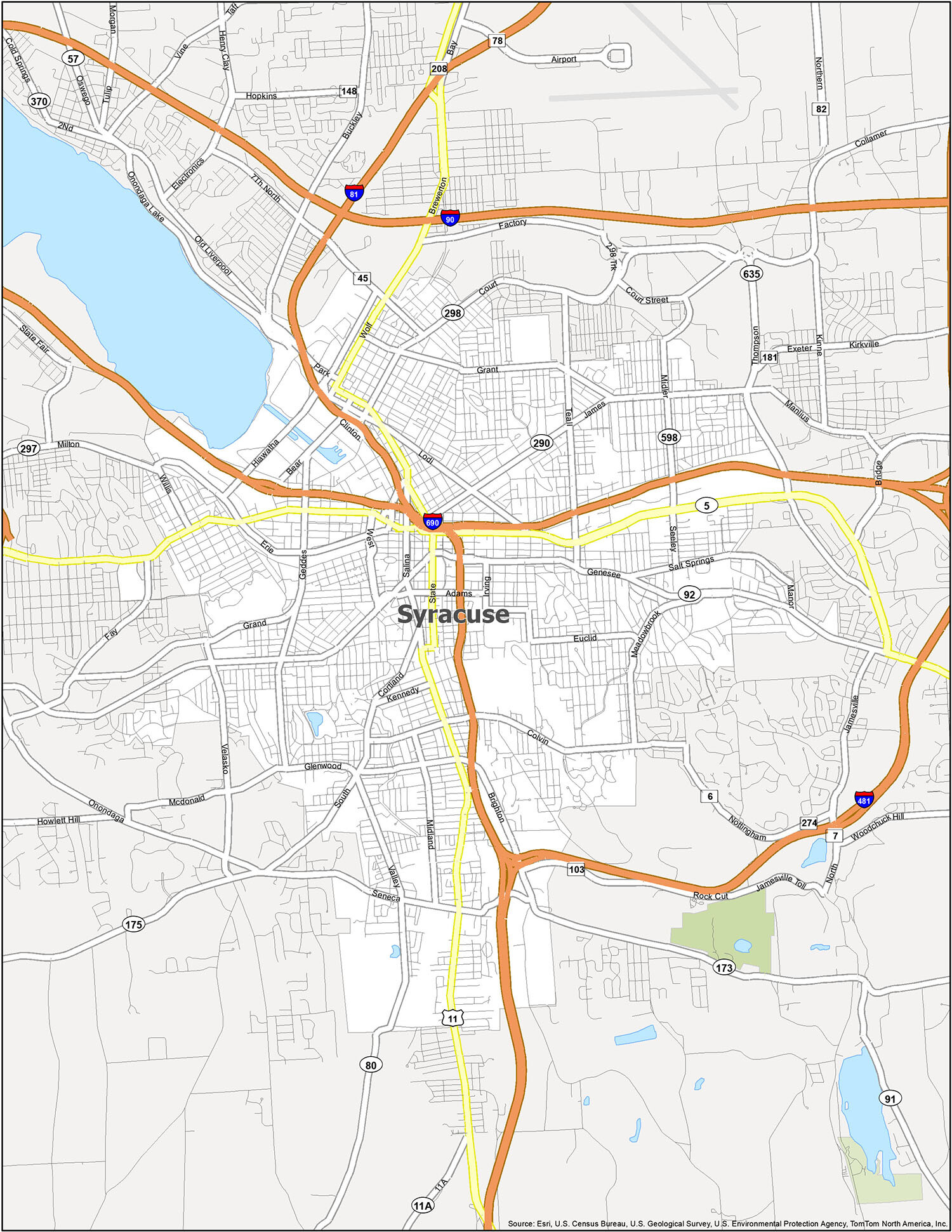

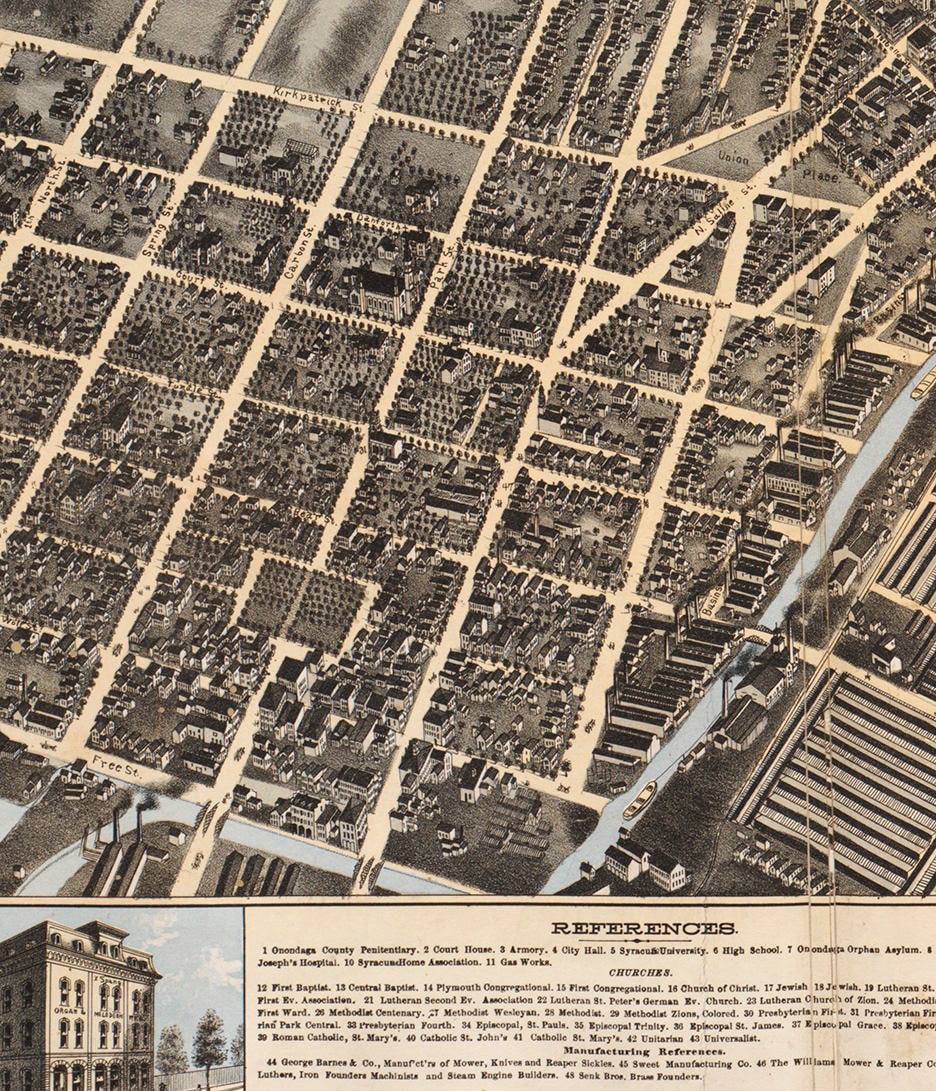
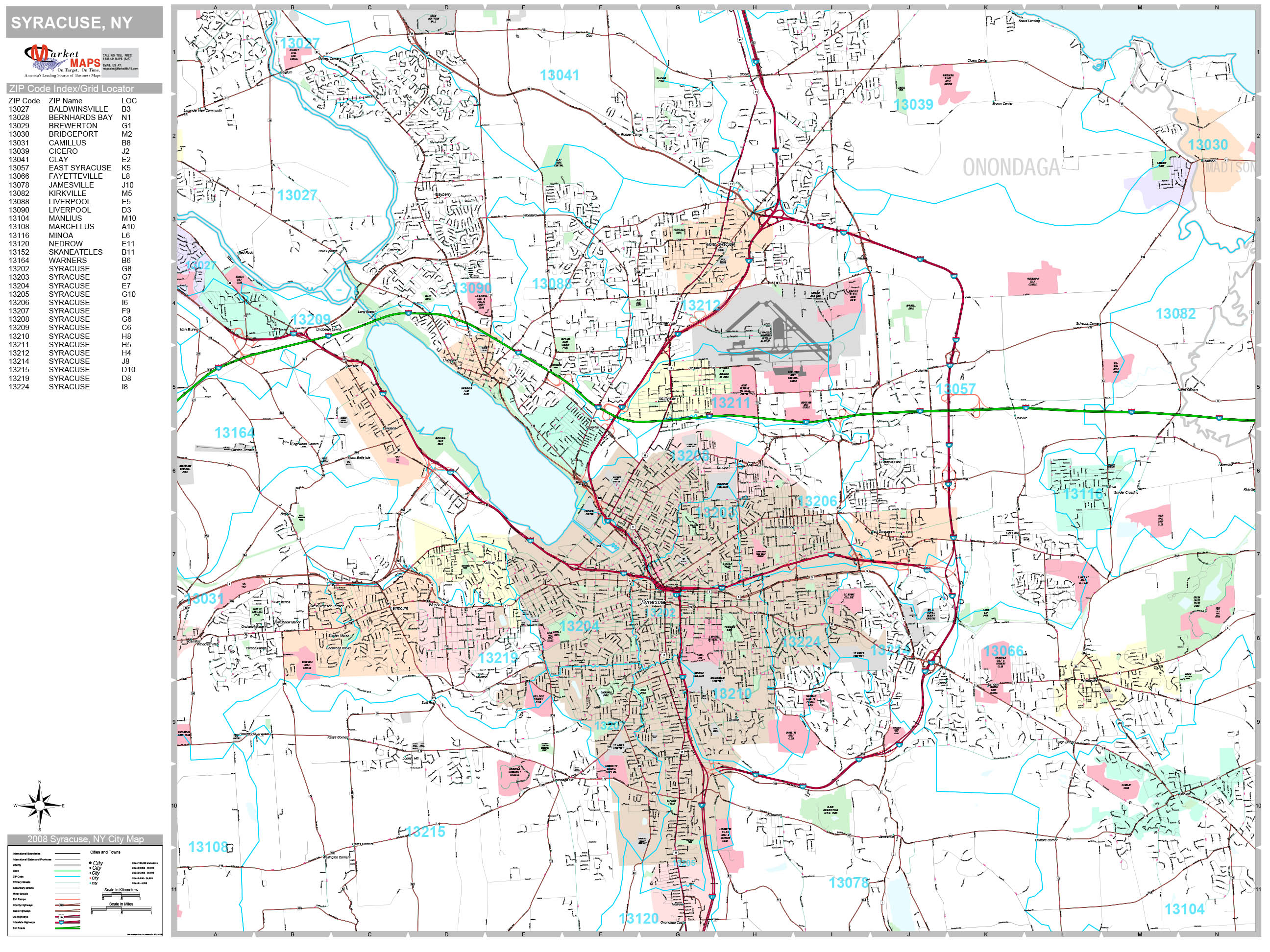
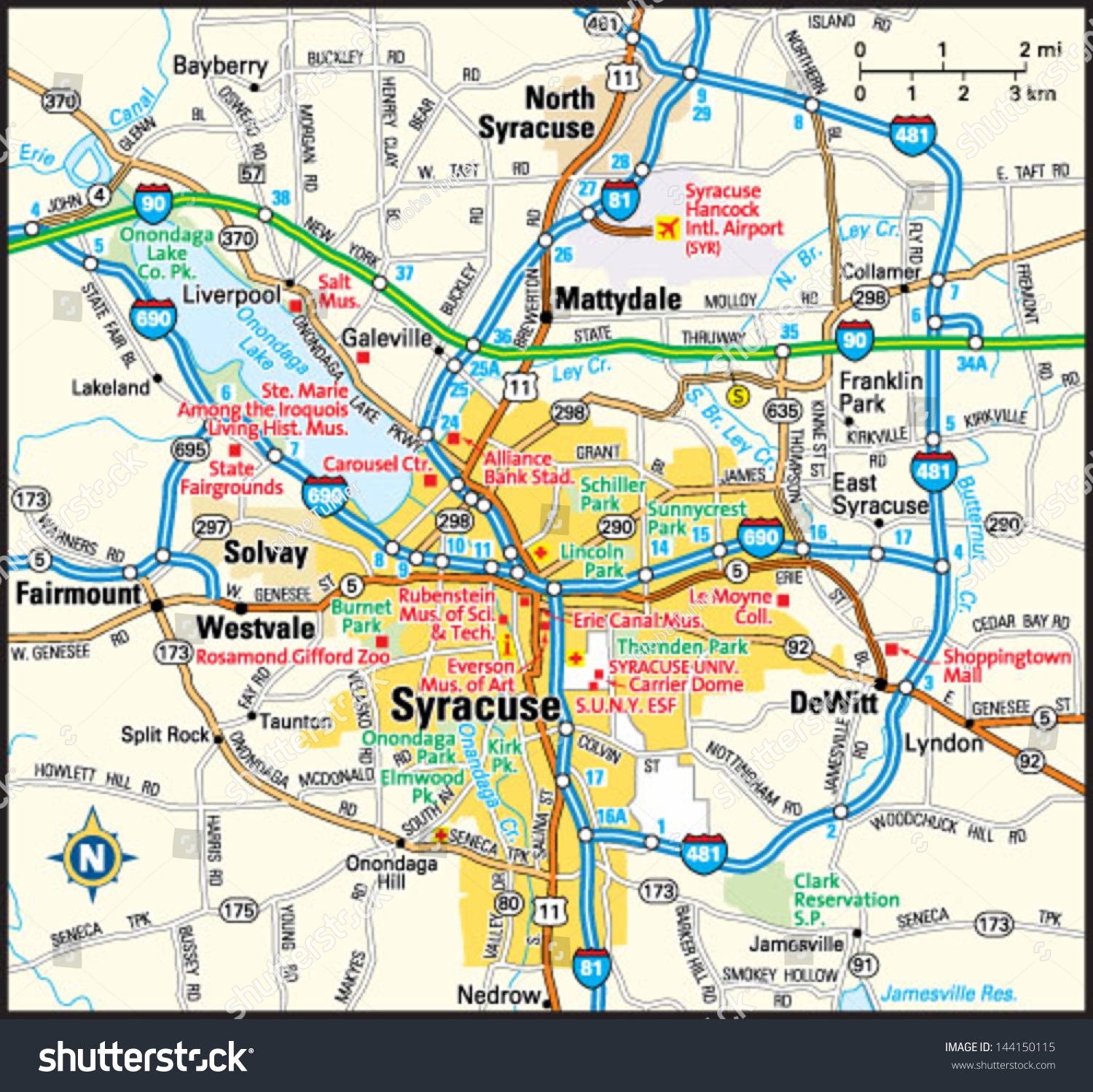
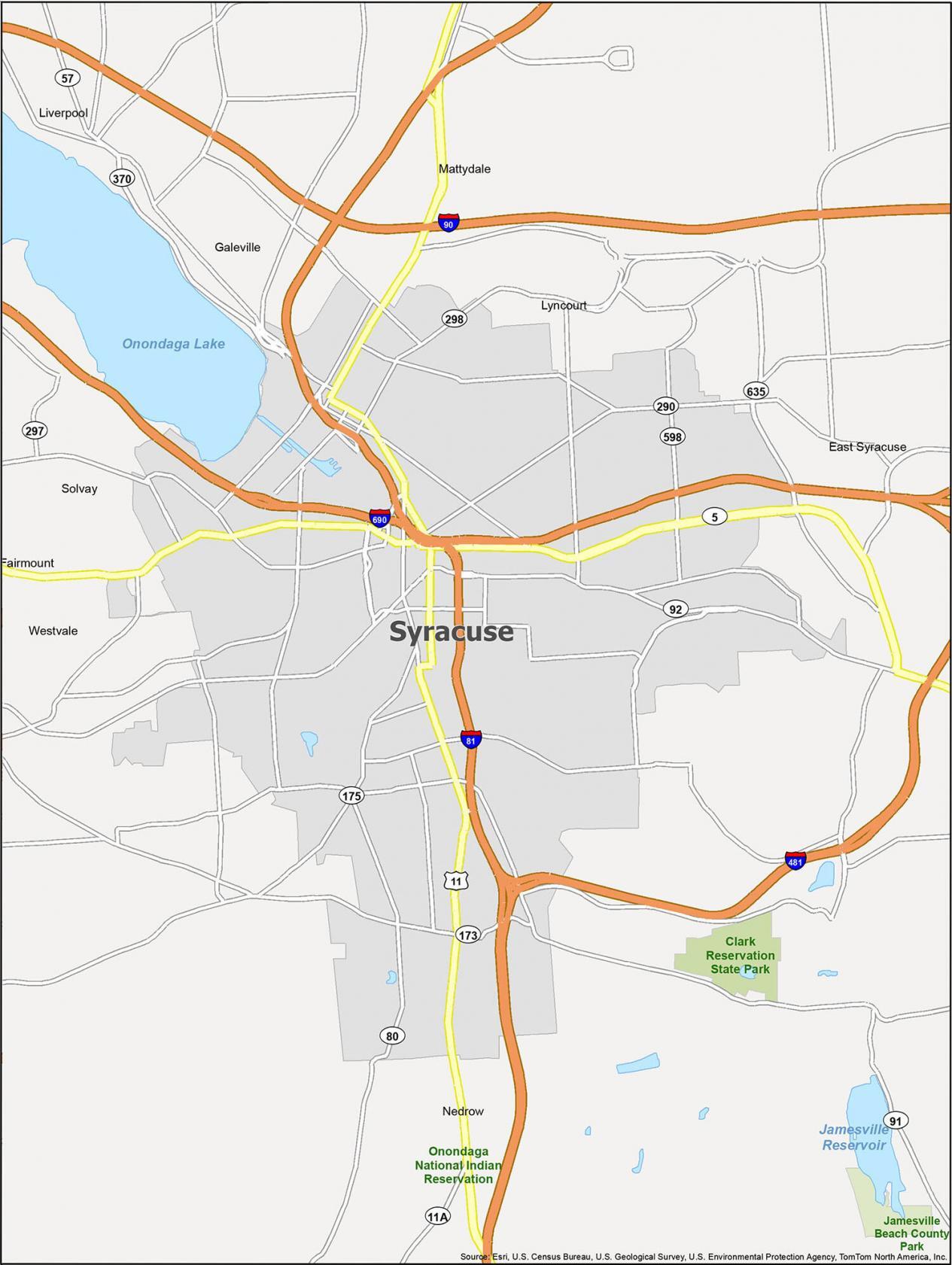
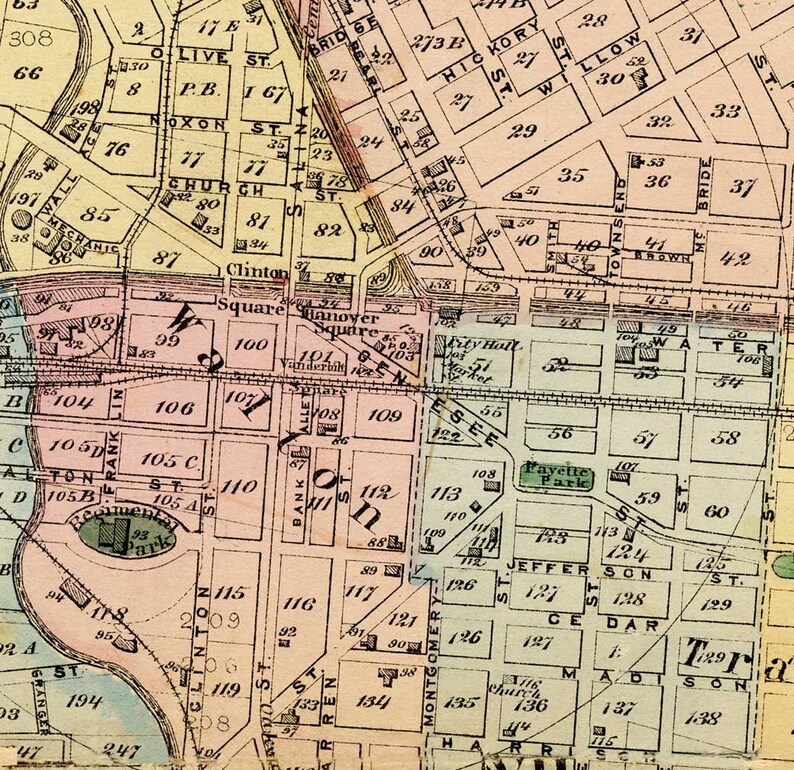

Closure
Thus, we hope this article has provided valuable insights into Syracuse: A Hub of History, Culture, and Innovation on the Map of New York. We hope you find this article informative and beneficial. See you in our next article!